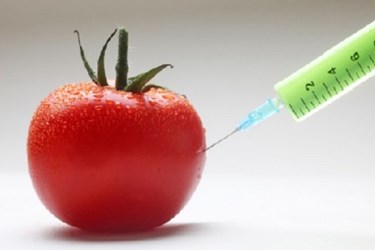Not So Fast, Vermont, Feds May Say "No" To GMO Labeling
By Alec Italiano, contributing writer

Bill in US Congress would give labeling power to the FDA, taking control away from states to enact GMO labeling laws
Recent headlines show that Vermont will become the first state in the nation to require genetically modified organisms (GMO) to be labeled on food products. However, the introduction of legislative initiatives, such as such as HR 4432, in Washington D.C., along with lobbyists opposing the proposed labeling requirements, Vermont’s bill may be under the control of the FDA.
If HR 4432 gains traction in the U.S. House of Representatives, it would basically result in a compromise. The bill would force the FDA to define the term “natural” and also require all genetically modified food to be approved before entering the market by the FDA. But, leaving this decision up to the FDA means a little less oversight on labeling requirements. Therefore, food manufacturers would still be able to supply states like Vermont with the food it is supplying to the rest of the nation without altering the label in any way (assuming all ingredients are FDA approved).
Lawyers against stricter labeling regulations are arguing that the Vermont law also infringes upon food manufacturers’ freedom of speech rights, and if let up to the Supreme Court, too much protection of constitutional rights would be given to commercial speakers. The Supreme Court recently reinforced this notion in Sorrell v. IMS Health where it ruled that unless the government cannot demonstrate that the disclosure is tailored for the interest of the state, freedom of speech for commercial entities includes the right not to disseminate those government-mandated messages. Recent similar cases have also leaned against earlier decisions that commercial entities must communicate information that consumers might consider in a purchasing decision.
It is also important to note that the Vermont law itself admits that there is no scientific evidence specifically stating that GMOs are harmful or lack nutrition in any way. Because of this risk being speculative, Vermont’s law would thus be communicating a subjective message to consumers – exactly what the law is saying food manufacturers are doing.
These initiatives for food labeling are often happening in safe, liberal states where elite politicians and business owners are trying to help out organic farmers who have found refuge in those states. It is a cycle of those with the extra buying power to prop up organic farmers claiming superior products, essentially attempting to cut out any outside food products from entering local markets. Also, having a patchwork of state legislation will end up costing the entire nation as a whole, tangling national food manufactures up in regulation attempting to supply America with food. If HR 4432 gains traction in the U.S. House of Representatives, essentially throwing Vermont’s bill out the window, these reasons will most likely be why.
